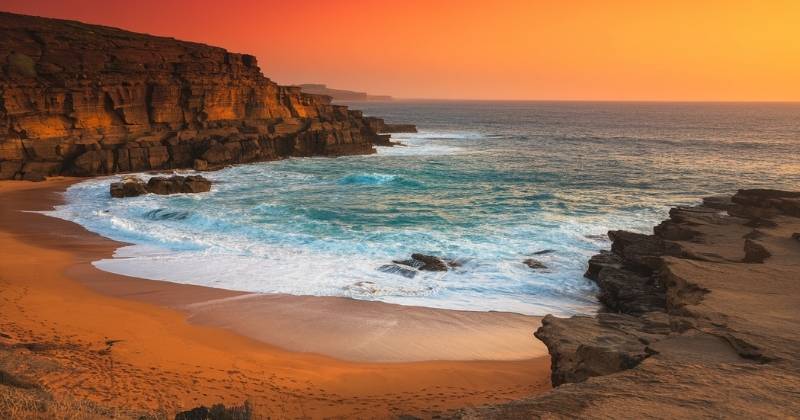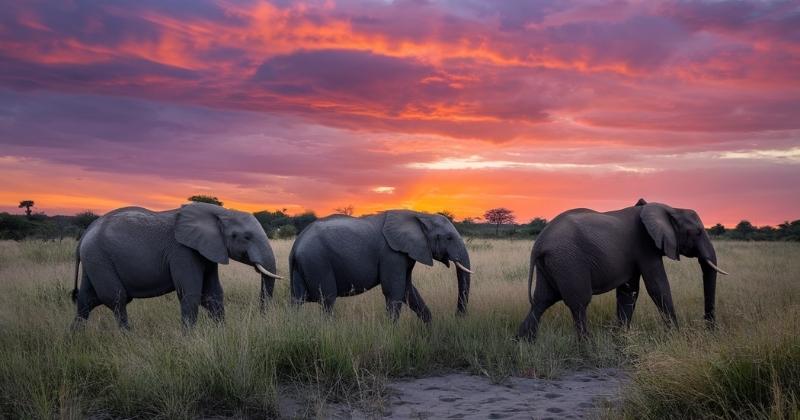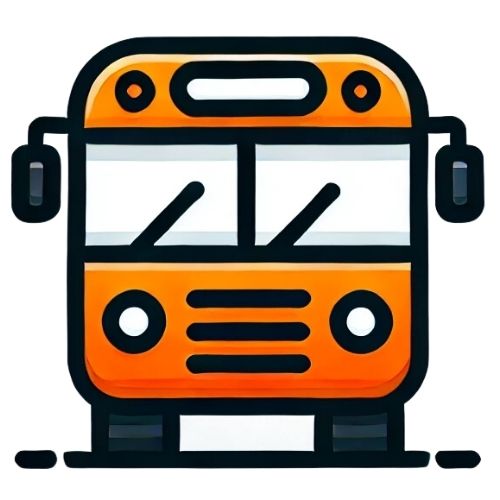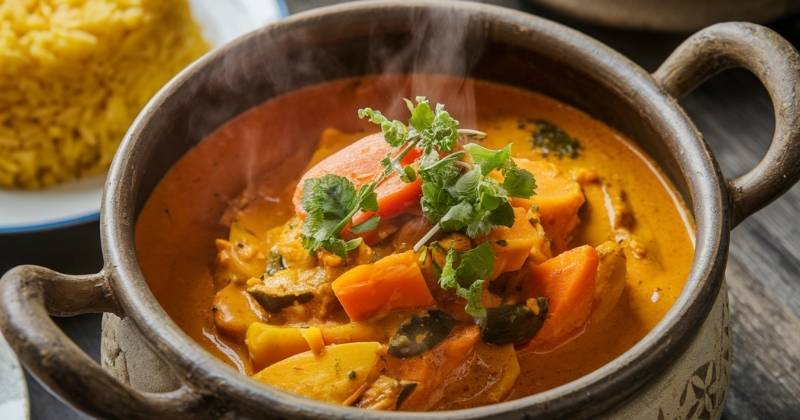
South Africa is a top choice for adventurous travellers, with Cape Town being a major attraction thanks to its vibrant sunsets, beautiful white beaches, renowned food scene, and accessible mountains for exploration. In contrast, Johannesburg, the country’s largest city, has a distinctly African vibe and is just a short drive from Pretoria, one of South Africa’s three capital cities. The capitals are Cape Town, which is known for its legislative and tourism roles; Pretoria, the executive capital; and Bloemfontein, the judicial centre. The country offers a rich mix of natural beauty and diverse experiences.
Key Takeaways
- Affordable Travel Options: South Africa offers a range of budget-friendly accommodation choices, such as hostels, Airbnbs, and housesitting. Travellers can save money by opting for self-catering, exploring lesser-known parks, and taking advantage of discounts during the off-peak season.
- Diverse Attractions: The country boasts a wealth of natural beauty and cultural experiences, from wildlife safaris and the Garden Route to low-cost activities like hiking Table Mountain, seal-watching, and visiting museums in major cities.
- Flexible Transportation: Public transport in South Africa can be inconsistent, especially in urban areas. Renting a car is often a more convenient and economical way to explore the country’s extensive landscapes, particularly for road trips along well-maintained routes such as those in the Western Cape.
About Arcadia Finance
Simplify your loan experience with Arcadia Finance. With no application fees and access to 19 certified lenders, all compliant with South Africa’s National Credit Regulator, you’ll enjoy a fast, secure process tailored to your needs.
Where to Go When Travelling in South Africa
South Africa spans approximately 1.22 million square kilometres and shares borders with Namibia, Botswana, Zimbabwe, and Mozambique, with coastlines along both the Atlantic and Indian Oceans. The country features a diverse landscape that includes subtropical forests, deserts, bushveld, and wetlands, resulting in a variety of climates.
Given its vast and varied terrain, choosing a destination can be overwhelming. For those with limited time, exploring some of South Africa’s most enchanting towns and cities might be the best way to experience its rich offerings.
One of the most popular driving routes is the Garden Route. Starting in Cape Town, this scenic drive extends from Mossel Bay to Storms River, showcasing the dramatic beauty of the Eastern Cape’s Wild Coast.
There are plenty of hidden gems and affordable spots in South Africa that can make your travel both exciting and budget-friendly. Explore some of the best holiday destinations in South Africa to help plan your next trip.

Typical Daily Expenses in South Africa
- Hostel bed: ZAR 200–300 per dormitory bed
- Basic double room: Starting from ZAR 600
- Self-catering flat (including Airbnb): From ZAR 550
- Bus fare (Johannesburg to Cape Town, 1,400 km): From ZAR 650 one way
- Flight (Johannesburg to Cape Town): Starting at ZAR 1 200 one way
- Coffee: ZAR 30
- Bunny chow (street food): ZAR 70
- Dinner for two: Starting at ZAR 450 (excluding drinks)
- Bottle of local wine: From ZAR 90
- Daily entry for Kruger National Park: ZAR 460 per adult / ZAR 230 per child
- Daily entry for Mountain Zebra National Park: ZAR 252 per adult / ZAR 126 per child
- Beer (per pint) at a pub: ZAR 30–60
Average Daily Budget
You can expect to spend from ZAR 800 per day on basic meals, accommodation, and activities. For more luxurious travel experiences, costs could exceed ZAR 3 500 per day.
Accommodations in South Africa
Accommodation in South Africa is generally affordable, though prices in Cape Town can be high. On average, a double room in a central three- or four-star hotel in Cape Town costs around ZAR 3 000 per night. As a popular tourist destination, hotels and game reserves often adjust their rates, with international visitors usually paying more, while locals may benefit from lower prices.
Prices vary significantly by location. For example, a beach house in Clifton, Cape Town, is much more expensive than a similar property a few miles away in Kommetjie. It’s important to consider what matters most to you and choose destinations that fit your budget.
To save on accommodation, avoid peak travel periods when demand is high. Cape Town’s busiest time is mid-summer, with peak rates from Christmas to New Year in December. The entire summer season, from November to March, tends to be the most expensive time to visit.
Did you know you can experience some of South Africa’s best attractions for free on your birthday? From complimentary restaurant treats to adventure experiences, check out this guide to Free Things To Do On Your Birthday in South Africa and make your day extra special—without spending a fortune!
Housesitting
Housesitting is a great way to secure free accommodation by taking care of someone’s home and often their pets while they are away. It’s ideal for long-term travellers or retirees, as the dates and locations for housesitting arrangements are usually set by the homeowner and can’t be easily adjusted. For those with flexible travel plans, housesitting offers a chance to lower travel costs, enjoy the comforts of a home, and experience life from a local’s perspective.
Couchsurfing
Couchsurfing, while involving some risks, offers a unique way to stay with locals. In South Africa, there are more than 46,000 hosts who welcome visitors into their homes at no cost. The Couchsurfing platform allows you to stay in spare rooms or on sofas, providing a chance to immerse yourself in South African culture and everyday life.
Workaway
Workaway is a global network that connects young travellers with opportunities to exchange work or voluntary services for free or low-cost accommodation. In South Africa, over 130 hosts and organisations participate, offering various volunteering roles in exchange for a place to stay.
Hostels
Hostels offer an affordable accommodation option, with shared dormitories being much cheaper than private hotel rooms. Many stylish hostels provide budget-friendly beds and often offer great discounts during off-peak seasons.
Airbnbs
For travellers seeking privacy and personal space, Airbnbs are a cost-effective choice for short stays. Depending on the season, it’s possible to find reasonably priced rentals, such as a two-bedroom beach house in Cape Town.
One of the easiest ways to manage your expenses while traveling in South Africa is through the use of credit cards. Whether you’re dining at restaurants, paying for tours, or booking accommodations, knowing where credit cards are accepted can save you time and hassle. It’s a convenient option that ensures you’re not constantly searching for ATMs or carrying large sums of
Transport in South Africa
The best mode of transport in South Africa depends largely on your destination. A key consideration for visitors is that public transport in many areas is neither efficient, reliable, nor particularly safe, even in major cities like Cape Town and Johannesburg.

MyCiti Buses
Launched in 2010 as part of the preparations for the FIFA World Cup, the MyCiti bus system serves parts of Cape Town. Its routes cover the Atlantic Seaboard, city centre, Hout Bay, and extend up the west coast to Big Bay. However, it does not currently operate in the southern or northern suburbs.

Gautrain
The Gautrain, introduced to accommodate World Cup visitors, is Johannesburg’s most reliable transport option. This high-speed rail service connects OR Tambo International Airport with central Johannesburg and Pretoria. Note that it is relatively expensive for getting around the Johannesburg area.

Car Hire
Renting a car is often the most convenient, cost-effective, and safest way to explore South Africa, particularly for road trips. The road conditions are generally best within the Western Cape, especially on routes from Cape Town to Plettenberg Bay, although road quality may decrease outside this region. Signage is clear, and the roads are relatively secure, though caution is advised around taxi and bus drivers.
Parking is abundant and very affordable, with congestion typically only an issue during peak hours on weekdays—usually from 7 am to 9 am and 3 pm to 6 pm. In cities, you may need to pay local car guards (around R10 to R20) to watch over your vehicle while it is parked.

Food in South Africa
South Africa’s culinary scene is a major draw for visitors, showcasing an abundance of fresh, high-quality ingredients and skilled chefs who create both unique and traditional dishes. In larger cities and popular tourist areas, you’ll find a diverse range of dining options, from charming, hidden gems to elegant five-star restaurants.
Traditional South African cuisine places a strong emphasis on meat, but finding truly authentic African dishes in urban areas can be challenging. The local palate leans more towards international flavours, with a wide selection of Mexican, Asian-fusion, and Italian restaurants, many of which are run by individuals from those respective cultural backgrounds.
Activities in South Africa
South Africa offers a wide range of tours and activities for both visitors and locals. Many well-known tourist spots are also popular with residents. In Cape Town, for example, locals frequently visit the Kirstenbosch National Gardens for a relaxing read, shop at the V&A Waterfront, or hike the trails of Table Mountain and Lion’s Head. Among the top attractions is the opportunity to go on a game drive at a nearby reserve. Many parks include morning and evening game drives in their per-person accommodation fees.
Organise Your Own Park Visit Instead of a Guided Safari
South Africa provides excellent wildlife-watching opportunities, often at great value for money. Most major parks are well-suited to independent travellers, making self-drive trips straightforward. If you prefer a wildlife guide on certain days, this can usually be arranged at the park’s reception. You can further reduce costs by opting to camp or stay in park-run accommodations, which often offer discounts during off-peak seasons. Self-catering is another way to keep expenses down.
For families or those planning an extended stay of over a week in major parks, investing in a SANParks Wild Card can lead to substantial savings. To stretch your budget even further, consider visiting smaller or lesser-known parks, which typically have lower entry fees than the more popular ones.
Explore South Africa’s Free and Low-Cost Attractions
Even in large cities, there are ways to cut costs. In Cape Town, for example, hiking up and down Table Mountain is more budget-friendly than taking the cable car. After the hike, you can cool off with a swim in the Camp’s Bay tidal pool or watch seals from the Sea Point promenade. In Durban, you can soak in the local vibe with a relaxed stroll along the boardwalk. Johannesburg has several free museums, and a visit to the Apartheid Museum is reasonably priced at R150.
Conclusion
South Africa is a diverse travel destination that accommodates a range of budgets and interests. Whether you’re exploring the lively streets of Cape Town and Johannesburg or enjoying the peace of its national parks and coastal routes, you can experience the country’s natural beauty and cultural heritage without overspending. Opting for budget-friendly accommodations, self-drive safaris, and travelling during off-peak times can help balance cost with memorable experiences. From wildlife encounters to vibrant city life and tranquil beaches, South Africa offers an enriching journey for every type of traveller.
Frequently Asked Questions
The average daily cost for budget travellers is around ZAR 800, while more luxurious experiences can exceed ZAR 3 500. This range includes basic meals, accommodation, and activities. To keep costs lower, consider staying in hostels, self-catering flats, or using public transportation.
Affordable accommodation options include hostels, self-catering flats, and Airbnbs. For further savings, look into housesitting, Workaway exchanges, or Couchsurfing. Additionally, many parks offer budget-friendly camping options and seasonal discounts.
Yes, renting a car is often the most convenient and cost-effective way to explore South Africa, especially for road trips. Public transportation can be unreliable, so having a car offers flexibility to visit remote areas, including national parks and scenic routes like the Garden Route.
Affordable activities include hiking Table Mountain, swimming at the Camps Bay tidal pool, exploring free museums in Johannesburg, and walking along Durban’s boardwalk. Visiting smaller national parks can also provide lower entry fees and rewarding wildlife-watching experiences.
The best time to visit for savings is during the off-peak seasons, which are typically outside the summer months of November to March. Cape Town, in particular, experiences high accommodation rates during the festive period from Christmas to New Year. Visiting during low-season months can help you find discounts on both accommodation and activities.
Fast, uncomplicated, and trustworthy loan comparisons
At Arcadia Finance, you can compare loan offers from multiple lenders with no obligation and free of charge. Get a clear overview of your options and choose the best deal for you.
Fill out our form today to easily compare interest rates from 16 banks and find the right loan for you.



